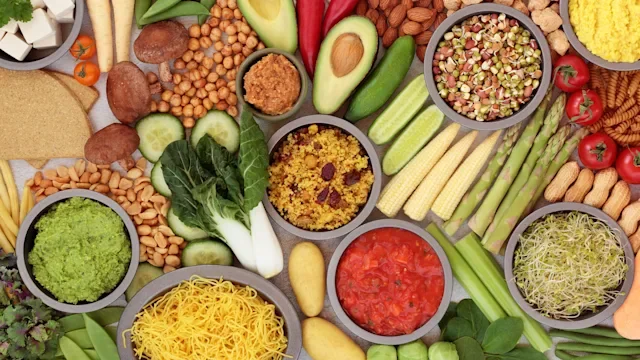Key takeaways:
Hydration helps treat and prevent kidney stones. Hydration keeps urine dilute, which means there’s less risk of stones forming.
Some drinks are better than others when it comes to preventing kidney stones. Water, lemon juice, coffee, and green tea are the best drinks for kidney stones.
You should avoid soda and alcohol. These drinks can lead to the formation of new kidney stones.
If you’ve ever had a kidney stone, you know that they can be incredibly painful. And about half of people with kidney stones end up having more in the future. But there are things you can do to lower your risk of kidney stones, like staying hydrated with the right drinks.
The kidneys filter blood and remove waste from the body by making urine. When waste products like calcium, oxalate, and urate build up in urine, they can form crystals. These crystals can then turn into kidney stones.
Hydration keeps urine dilute or less concentrated. When urine is diluted, there’s less opportunity for waste products to collect into stones. And some drinks contain properties that also may help prevent kidney stones. Here are five drinks that can help with kidney stones — and four to avoid.
Search and compare options
1. Water
Drinking plenty of water is one of the best ways to prevent kidney stones. Experts advise people with a history of kidney stones to drink enough water to make at least 2 L of urine every day. How much water you need to drink to make that much urine depends on things like your weight, environment, and activity level.
It can be hard to estimate the amount of urine you make every day. If your urine is a light, pale yellow, that’s a good sign you are probably well hydrated.
2. Lemon juice
Lemons are naturally high in citrate. Citrate is a natural substance that makes urine less acidic. Having less acid in your urine lowers your risk of developing calcium oxalate stones (the most common type of kidney stone). One study found that drinking 2 oz of lemon juice twice a day was enough to lower the risk of kidney stones. Try adding freshly squeezed lemon juice to your water to get the benefits of citrate.
3. Orange juice
Orange juice is also high in citrate, and appears to have an even bigger effect on urine acid levels. One review found that orange juice is even better at preventing kidney stones than lemon juice. Try a glass of freshly squeezed orange juice each morning. If you choose to drink premade orange juice, pick a juice that doesn’t have a lot of added sugar. Not only will this be better for blood sugar. But added sugar can increase your risk of developing kidney stones.
4. Coffee
Research suggests that coffee lowers the risk of developing kidney stones. But it’s not quite clear why. It may have to do with coffee’s natural caffeine content. In one large study, people who drank more caffeine were less likely to form kidney stones.
But caffeine isn’t the only reason coffee can help prevent kidney stones. Decaffeinated coffee has much less caffeine than regular coffee, but evidence suggests it can also help lower your risk of forming kidney stones.
Foods that cause kidney stones: Choosing the best drinks can help. But so can avoiding the foods that can be problematic for people with kidney stones.
Raise a glass to kidney health: These are the best drinks to help your kidneys run smoothly.
Do you need a CT scan for kidney stones? Not always. If you are someone who has had more than one kidney stone, you may not need a CT scan for diagnosis.
5. Green tea
Many people drink green tea for its health benefits. There’s evidence that tea, particularly green tea, can help protect against kidney stones. In addition to being a good source of hydration and caffeine, green tea contains a class of compounds called catechins. Catechins are antioxidants that make it harder for calcium to crystalize and form kidney stones.
Drinks that can cause kidney stones
There are some drinks that can actually increase your risk of forming new kidney stones. Try to avoid the following drinks as your source of hydration.
Soda
In general, you want to limit having sugar-filled drinks like soda. But this is especially true if you have a history of kidney stones. Sugary drinks like soda are high in fructose. Fructose causes your kidneys to send more calcium, oxalate, and uric acid into your urine. All of these compounds are capable of forming kidney stones.
Read more like this
Explore these related articles, suggested for readers like you.
Cola sodas also contain phosphoric acid. Phosphoric acids make it easier for kidney stones to form. One study showed that drinking one cola soda daily increased the risk of kidney stones by 23%.
Energy drinks
There’s not a lot of research that looks directly at the impact of energy drinks on kidney stones. But from what we do know, they may increase your risk of kidney stones. This is likely due to their properties that are similar to soda — most notably their high fructose content. Many energy drinks also have a moderate amount of sodium, which can also contribute to kidney stone formation.
Sports drinks
Sports drinks can be a great way to replenish fluids and electrolytes during long, intense exercise, or if you’re sick. Sports drinks contain carbohydrates and electrolytes like sodium, potassium, chloride, and magnesium. These ingredients can help prevent dehydration if you’ve been ill or exercising. But if you’re prone to kidney stones, the extra sugar and sodium in these drinks can be problematic. So while you don’t need to avoid them entirely, you want to limit these drinks when possible.
Alcohol
Drinking alcohol doesn’t directly cause kidney stones. But alcohol is a diuretic, which means that it makes you pee more. This keeps you from staying hydrated. And if you’re prone to kidney stones, staying hydrated is key to preventing future kidney stones. So try to limit how much alcohol you drink so that you can stay hydrated.
How can you prevent kidney stones?
In addition to staying well hydrated, there are a few more things you can do to help prevent kidney stones:
Limit your salt intake to less than 2,000 mg a day.
Make sure you’re getting enough calcium in your diet (between 1,000 mg and 1,200 mg from food a day).
Try to limit foods that are high in oxalate.
Eat more plant-based foods and fewer sources of animal protein.
Avoid vitamin C supplements.
When should you seek medical care for kidney stones?
If you’ve just experienced your first kidney stone, it’s a good idea to see your primary care provider. They may be able to help you figure out the type of kidney stone you have, which is important information to help you avoid kidney stones in the future.
You should get medical care right away if you have symptoms, such as:
Nausea and vomiting
Trouble eating or drinking
Fever
Intense pain
Inability to pee
Change in urine color
Frequently asked questions
Cranberry juice hasn’t been shown to prevent kidney stones. But there’s some evidence to suggest that cranberry juice may help prevent UTIs (urinary tract infections) — particularly in people who get them frequently. But it’s important to choose options that are low in sugar, since added sugar can be harmful to the kidneys.
Carbonation by itself doesn’t cause kidney stones. So carbonated drinks — like sparkling water — aren’t harmful. Carbonated sodas can cause kidney stones, but this is due to the fructose and phosphoric acid, not the carbonation.
It doesn’t appear so. Black tea may not be as beneficial as green tea. But research doesn’t suggest it can actually cause kidney stones. And given research that suggests caffeine may help, any caffeinated tea may offer small benefits.
Cranberry juice hasn’t been shown to prevent kidney stones. But there’s some evidence to suggest that cranberry juice may help prevent UTIs (urinary tract infections) — particularly in people who get them frequently. But it’s important to choose options that are low in sugar, since added sugar can be harmful to the kidneys.
Carbonation by itself doesn’t cause kidney stones. So carbonated drinks — like sparkling water — aren’t harmful. Carbonated sodas can cause kidney stones, but this is due to the fructose and phosphoric acid, not the carbonation.
It doesn’t appear so. Black tea may not be as beneficial as green tea. But research doesn’t suggest it can actually cause kidney stones. And given research that suggests caffeine may help, any caffeinated tea may offer small benefits.
The bottom line
Kidney stones are a painful problem. Most people who have had kidney stones are eager to know how they can avoid them in the future. Staying well hydrated and making sure you’re peeing enough is one of the key steps to preventing kidney stones. And what you choose to drink can make a difference. The best drinks for kidney stones are water, lemon juice, orange juice, coffee, and green tea. Try to avoid sugary sodas, sports drinks, and alcohol.

Why trust our experts?


References
American Family Physician. (2011). Preventing kidney stones with diet and nutrition.
Bao, Y., et al. (2020). Increased water intake for preventing urinary stones. Cochrane Database of Systematic Reviews.
Barghouthy, Y., et al. (2021). Tea and coffee consumption and pathophysiology related to kidney stone formation: a systematic review. World Journal of Urology.
Barghouthy, Y., et al. (2021). Role of citrus fruit juices in prevention of kidney stone disease (KSD): A narrative review. Nutrients.
Bentz, D. D. (2023). Kidney stones and energy drinks: A literature review.
Dai, J. C., et al. (2022). Diet and stone disease in 2022. Journal of Clinical Medicine.
Ferraro, P. M., et al. (2013). Soda and other beverages and the risk of kidney stones. Clinical Journal of the American Society of Nephrology.
Ferraro, P. M., et al. (2014). Caffeine intake and the risk of kidney stones. The American Journal of Clinical Nutrition.
HealthLinkBC. (2021). Healthy eating guidelines for prevention of recurrent kidney stones.
Isemura, M. (2019). Catechin in human health and disease. Molecules.
National Kidney Foundation. (n.d.). Kidney stones.
Ruggenenti, P., et al. (2021). Fresh lemon juice supplementation for the prevention of recurrent stones in calcium oxalate nephrolithiasis: A pragmatic, prospective, randomised, open, blinded endpoint (PROBE) trial. eClinicalMedicine.
Shu, X., et al. (2019). Green tea intake and risk of incident kidney stones: Prospective cohort studies in middle-aged and elderly Chinese individuals. International Journal of Urology.
Siener, R., et al. (2021). Effect of black tea consumption on urinary risk factors for kidney stone formation. Nutrients.
Taylor, E.N., et al. (2008). Fructose consumption and the risk of kidney stones. Kidney International.
Yin, S., et al. (2023). Association between added sugars and kidney stones in U.S. adults: Data from National Health and Nutrition Examination Survey 2007–2018. Frontiers in Nutrition.
Zhai, W., et al. (2013). Catechin prevents the calcium oxalate monohydrate induced renal calcium crystallization in NRK-52E cells and the ethylene glycol induced renal stone formation in rat. BMC Complementary Medicine and Therapies.


















